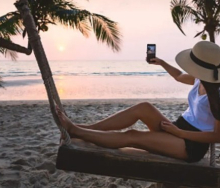Given the proliferation of digital technology for meetings and conferences, combined with the myriad corporate travel restrictions imposed by companies, you’d be forgiven for wondering how the physical meetings, incentives, conferences and events (MICE) sector will ever survive.
Not to mention the continuing international travel restrictions, public concerns over the safety of travel and the use of shared and enclosed facilities, government restrictions on attendance numbers, and money-saving efforts being instituted by businesses across the globe.
But the picture is far from all bleak, as strategic adaptability does indeed have the power to revive the ailing MICE sector - especially in respect of domestic rather than international events.
Here are some of the key factors that will give MICE operators an edge once the world begins emerging from the COVID-19 reality:
1. New solutions
The wearing of masks, maintaining social distancing and hand sanitising have all become part of the world’s new every-day routine. As the hospitality industry began reopening, additional stringent health and safety protocols have been introduced to ensure peace of mind for both staff and guests.
At Radisson, this included the new Radisson Hotels Safety Protocols in collaboration with SGS, a leading company in inspection, verification, testing and certification. As more meetings and events are planned, hoteliers and other MICE operators will rely heavily on new quality standards, certifications and accreditations, while also reassessing their hardware and software readiness to take advantage of every opportunity.
Additionally, solutions for monitoring crowds, automated self-cleaning machines for escalators, enhanced air-filtration systems for ventilation, and electrostatic disinfectant sprayers for public and multi-use areas are likely to offer a further safety layer to reassure guests.
2. Hybrid offerings
COVID-19 has demonstrated our need for human interaction just as much as it has our ability to operate remotely when necessary. This means that in-person events are likely to still be the first-prize option and unlikely to be replaced by virtual events in any significant way for the long term.
Throughout lockdowns, digital offerings such as Zoom have been leveraged to conduct meetings and other events, and that’s unlikely to change any time soon. Not only do these offerings provide ease of use and remote participation, but also offer corporates a continuing opportunity to draw the line between essential and non-essential travel.
That said, nothing replaces the in-person experience, so we can expect hybrid events to be the order of the day wherever possible. Radisson’s hybrid offering, is a collaboration between the hotel chain and enterprise video-communication leader Zoom. It combines the best of in-person and virtual solutions, allowing for events in multi-locations, both in-person and via video-conferencing facilities. The locations provide reliable image, sound and video systems, dual screens, high-speed internet connections and more, allowing attendees to interact and engage from anywhere in the world.
3. Size matters
Until a vaccine is available, restrictions that limit the size of gatherings are expected to remain in place to allow for effective social distancing. With this renewed focus on smaller-scale events, it follows that the demand for smaller venues will grow.
As part of Radisson’s Hybrid Solutions offering, Hybrid Rooms are also available. These combine office facilities with the comforts of a hotel room. MICE operators will need to deep dive into the needs of guests and event organisers alike in respect of such small-scale venues, including the potential of adding flexibility to room configurations, along with offering other MICE amenities.
For venues that are much larger, such as ballrooms, operators can explore the various opportunities that bigger spaces provide, including being able to more easily cater for social distancing. Non-traditional exhibitions may also require designated spaces that can be easily sanitised between sessions, for example.
4. Green thinking
Although there have been numerous reports of the COVID-19 lockdowns positively impacting air pollution, the production of single-use plastic gloves, masks and other equipment is on the rise. Hotels and other hospitality industry players who have committed to aligning with the United Nations Sustainable Development Goals (SDGs, or Global Goals) will have to rethink their eco-friendly practices amidst renewed fears of sharing items and spaces. Minimising the carbon footprint of both hotels and their guests will set the best-practice standard going forward, with many establishments already leading the way.
Radisson’s Carbon Neutral Meetings, for example, automatically offset the carbon footprint of all meetings and events that take place on their properties worldwide, at no cost to clients. Additionally, supporting local, sustainable businesses, implementing alternative energy sources, and even adding eco-friendly landscaping, can be expected to become the new normal.
While it’s doubtful that either the hospitality or MICE industries will return to pre-COVID-19 conditions any time soon, that certainly doesn’t mean that, as we move into 2021, there aren’t still plenty of opportunities for innovation. It’s also likely that improved ongoing analysis of data needs will help guide forward planning, while also helping operators to understand and take advantage of prevailing trends.














